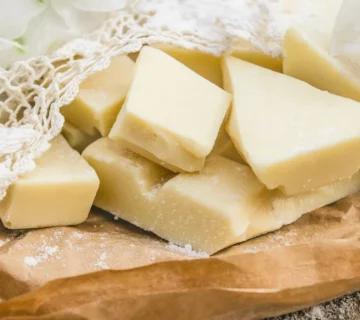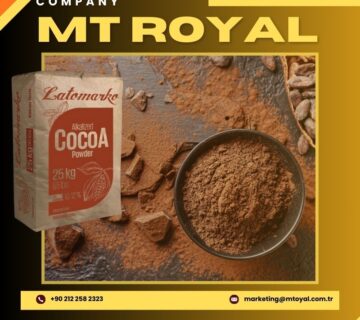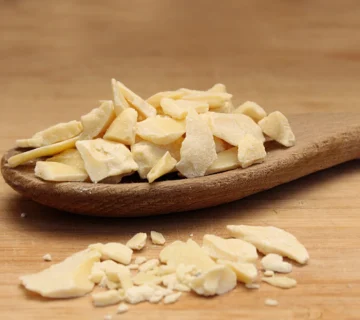Walk into any modern chocolate production line in Baghdad, a bakery in Basra, or a dairy facility in Erbil, and you’ll notice one clear trend — the growing preference for organic ingredients. Among these, organic cocoa powder has taken center stage. Once considered a niche import, it’s now a critical ingredient in Iraq’s rapidly evolving food and beverage sector.
Why? Because factory owners and production managers are realizing something profound: today’s consumers are reading labels. They want purity, traceability, and ethical sourcing — values that start not in marketing departments but in the procurement choices made by industrial buyers.
For manufacturers, this shift brings both opportunity and responsibility. Selecting the right organic cocoa powder supplier in Iraq isn’t just about finding a good deal — it’s about ensuring consistency, compliance, and product excellence at scale. And that’s where reliable wholesale partners like MT Royal come into play.
Understanding Organic Cocoa Powder: More Than Just an Ingredient
Cocoa powder is often mistaken as a simple byproduct of cocoa beans. But in reality, it’s the essence of the cocoa bean — concentrated, versatile, and complex in flavor. When the term “organic” enters the equation, it introduces an entirely different set of standards.
Organic cocoa powder is produced from cocoa beans cultivated without synthetic pesticides, herbicides, or chemical fertilizers. The beans are typically grown under sustainable agricultural systems that promote biodiversity and soil health. This commitment to natural cultivation doesn’t just protect ecosystems; it creates a richer, cleaner cocoa profile — something manufacturers can taste and consumers can trust.
For Iraqi manufacturers, especially those in chocolate, confectionery, bakery, and dairy production, these characteristics translate directly into product differentiation. Organic cocoa powder isn’t just a label advantage; it’s a sensory and functional upgrade.
Why Iraq’s Industrial Buyers Are Turning to Organic Cocoa Powder
In Iraq’s dynamic food manufacturing landscape, decision-makers face increasing pressure from both market and regulatory forces. Organic cocoa powder offers a strategic solution to several key challenges:
1. Clean Label Demand
Consumers in Iraq and across the region are more health-conscious than ever. Supermarkets and local stores are filling with products labeled “organic,” “no artificial additives,” or “natural ingredients.” For brands competing on quality and authenticity, the use of organic cocoa powder is a visible and credible signal.
2. Export Readiness
As Iraqi manufacturers expand to neighboring markets — from Jordan and Saudi Arabia to the UAE — they face stricter import standards. Using certified organic ingredients can ease export approvals and boost brand credibility internationally.
3. Consistency and Process Control
Industrial buyers understand that not all cocoa powders behave the same way in large-scale production. Organic varieties, when sourced from reputable suppliers, often have better particle uniformity, pH stability, and solubility — reducing downtime and ensuring consistent flavor across batches.
4. Supply Chain Reliability
In our experience supplying food manufacturing facilities across Iraq, we’ve seen that supplier consistency can make or break production efficiency. With organic ingredients, reliability matters even more — and partnering with established suppliers like MT Royal, who source from trusted global brands, helps maintain that assurance.
The Industrial Value of Organic Cocoa Powder
When it comes to manufacturing operations, every ingredient must serve multiple roles — performance, cost-efficiency, and sensory value. Here’s how organic cocoa powder supports industrial production lines:
1. Flavor Concentration
Organic cocoa powder offers a deep, clean, and naturally intense chocolate flavor. For chocolate producers, this means less powder per batch without sacrificing richness — a subtle but meaningful reduction in cost-per-unit.
2. Functional Versatility
From bakery fillings to dairy flavoring, organic cocoa powder’s natural fat content and solubility make it suitable for both dry and wet systems. It blends easily into syrups, batters, and emulsions, minimizing clumping — an advantage every production supervisor appreciates.
3. Shelf Life and Product Stability
High-quality organic cocoa powders, especially those sourced from European manufacturers like Latamarko, undergo gentle processing to retain antioxidants and natural stabilizers. This helps extend product shelf life without artificial preservatives — a huge plus for factories producing shelf-stable goods.
4. Worker Safety and Facility Compliance
Factories that switch to organic ingredients often notice a cleaner, safer working environment. Fewer chemical residues mean less equipment contamination, smoother cleaning cycles, and easier compliance with ISO and HACCP standards.
Comparing Organic and Conventional Cocoa Powder
| Feature | Organic Cocoa Powder | Conventional Cocoa Powder |
|---|---|---|
| Cultivation | No synthetic fertilizers or pesticides | Conventional farming chemicals used |
| Flavor Profile | Rich, natural, aromatic | Sometimes flatter or chemically influenced |
| Certification | USDA, EU Organic, or equivalent | May lack certification |
| Worker & Environmental Impact | Sustainable, ethical | Often resource-intensive |
| Ideal Use | Premium products, export-grade goods | Mass-market applications |
For manufacturers who aim to position their brands in the premium or export segment, organic cocoa powder is the strategic choice — one that elevates not only the end product but the brand’s long-term perception.
Procurement Challenges in Iraq’s Cocoa Supply Chain
While the advantages are clear, sourcing organic cocoa powder in Iraq isn’t without its complexities. Many factory managers and procurement officers face issues such as:
- Supply inconsistencies: Unreliable deliveries can disrupt production schedules.
- Price volatility: Global cocoa prices fluctuate due to weather and supply chain shifts.
- Certification confusion: Not all “organic” claims meet international standards.
- Storage conditions: Iraq’s climate can affect cocoa stability if warehouses lack proper humidity control.
At MT Royal, we’ve worked closely with manufacturers to mitigate these risks — ensuring proper documentation, steady stock availability, and temperature-controlled storage to maintain product integrity from port to production floor.
What to Look for When Choosing a Supplier
Choosing an organic cocoa powder supplier for industrial use is not like purchasing a simple raw material. You’re selecting a partner in your production chain. Here are key factors every procurement professional should evaluate:
1. Authentic Certification
Ensure that the product is certified by recognized bodies like EU Organic, USDA Organic, or Fairtrade. Suppliers should provide batch-level traceability documents upon request.
2. Quality Consistency
Ask for sensory test reports or trial samples. Reputable suppliers will allow manufacturers to test cocoa powder behavior in real production settings before full-scale purchase.
3. Supplier Transparency
Trustworthy suppliers are open about their sourcing. For example, MT Royal provides access to multiple brands from Europe and Asia, offering flexibility based on price, fat content, and intended application.
4. Technical Support
For industrial buyers, supplier support goes beyond delivery. Look for suppliers that understand your production challenges and can recommend process adjustments, solubility ratios, or blending tips.
Latamarko: European Precision Meets Organic Integrity
Spanish engineering has long been respected in industrial food manufacturing — and Latamarko exemplifies this reputation. Known for their precision in processing and consistent quality, Latamarko’s organic cocoa powders are trusted by European confectionery producers and now gaining traction among Iraqi manufacturers.
Their powders stand out for:
- Uniform granulation for smooth blending
- Rich aroma and deep brown color ideal for chocolate and bakery applications
- Stable fat content for consistent viscosity control
- Certified organic compliance with EU and global standards
When combined with MT Royal’s regional distribution expertise, Latamarko’s products become a benchmark for quality in Iraq’s evolving cocoa market.
Application Insights: How Iraqi Factories Use Organic Cocoa Powder
To understand the industrial importance of organic cocoa powder, let’s explore a few real-world applications across Iraq’s food sector:
Chocolate Manufacturing
Local producers in cities like Baghdad and Najaf use organic cocoa powder to formulate premium bars and coatings. The clean flavor helps minimize the need for artificial enhancers, while the natural color provides a richer appearance that appeals to consumers seeking authenticity.
Bakery & Pastry Production
In large bakeries, cocoa powder is used in cake mixes, cookies, and frostings. Organic versions provide better emulsification in fat-based systems and help improve texture stability during baking cycles.
Dairy and Beverage Production
From chocolate milk to cocoa yogurt, dairy processors rely on fine-milled organic cocoa powder for smooth dispersion. It adds not only flavor but also antioxidant value — something more brands are starting to highlight in their marketing.
Ice Cream and Dessert Mixes
Organic cocoa powder retains aroma even at low temperatures, making it a favorite among dessert manufacturers who aim for premium taste consistency.
Best Practices for Bulk Procurement in Iraq
When purchasing organic cocoa powder wholesale, manufacturers can optimize both cost and quality by following a few practical strategies:
- Plan Purchases Quarterly – Cocoa prices fluctuate seasonally. Bulk orders secured through contracts with suppliers like MT Royal often protect against market volatility.
- Evaluate Fat Content Options – High-fat powders (20–22%) are ideal for chocolates, while low-fat options (10–12%) suit bakery mixes.
- Store Smart – Keep cocoa in cool, dry environments, ideally below 20°C and away from strong odors.
- Standardize Recipes – Once you find the right powder grade, document exact mixing ratios to ensure production consistency across shifts.
- Collaborate with Your Supplier – We’ve seen factory managers benefit greatly from regular consultations with their suppliers. Simple adjustments in mixing or storage can significantly extend product shelf life and improve efficiency.
Trends Shaping Iraq’s Cocoa Powder Market
The future of cocoa in Iraq is being shaped by three major forces:
1. Shift Toward Health and Wellness
Iraqi consumers are becoming more ingredient-aware. Organic cocoa powder aligns perfectly with the rising demand for clean, ethical, and sustainable foods.
2. Localization of Processing
Several Iraqi manufacturers are exploring semi-processing — blending and packaging imported cocoa powder domestically. This opens opportunities for cost reduction and local job creation.
3. Sustainability Commitments
Factories are integrating sustainability metrics into their procurement KPIs. Choosing certified organic cocoa supports corporate ESG goals while enhancing export potential.
Frequently Asked Questions (FAQ)
Q: Is organic cocoa powder suitable for large-scale industrial use in Iraq?
Absolutely. High-grade organic cocoa powders perform reliably in large batch operations when sourced from consistent suppliers like MT Royal.
Q: Does organic mean lower yield or weaker flavor?
Not at all. In fact, many organic cocoa powders offer stronger, more natural flavor profiles due to their minimal processing.
Q: How can I verify a supplier’s organic certification?
Request certificates from recognized authorities such as USDA or EU Organic, along with batch documentation. MT Royal provides these for all certified products.
Q: Can organic cocoa powder withstand Iraq’s climate during transport and storage?
Yes, provided it’s stored properly — away from moisture and heat. MT Royal maintains climate-controlled storage and packaging for sensitive ingredients like cocoa powder.
The MT Royal Difference: Reliability Rooted in Experience
At MT Royal, we supply manufacturers with a comprehensive range of brands, ensuring competitive pricing without compromising on quality. Over the years, we’ve worked with production facilities across Iraq — from confectionery producers in Baghdad to dairy plants in Dohuk — and understand the unique challenges of the local market.
Our commitment is simple: to connect Iraqi manufacturers with world-class ingredients, stable supply chains, and transparent quality assurance. Whether you need bulk organic cocoa powder from global suppliers or premium European options from Latamarko, our team ensures your factory’s operations never face interruptions.
Final Reflection: The Flavor of Progress
In many ways, the story of organic cocoa powder in Iraq mirrors the country’s broader industrial evolution — a movement toward quality, sustainability, and global integration. Every time a manufacturer chooses a cleaner, more ethical ingredient, they’re shaping not just their product line, but the future of Iraq’s food industry.
And perhaps that’s the real flavor of progress: a commitment to excellence that begins with a single, carefully sourced ingredient — and grows into a reputation for integrity that endures far beyond the factory gates.
latamarko alkalized cocoa powder lm60
cocoa powder for chocolate production-Best price
Food industry raw materials – list of products
Types of Gelatin from Turkish Manufacturer
Alkalized Cocoa Powder Bulk Supplier







No comment